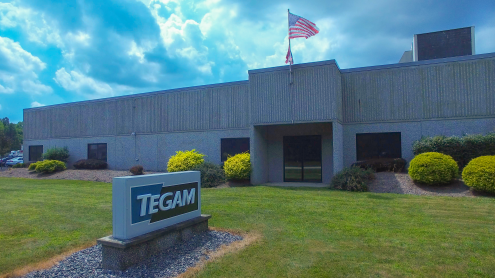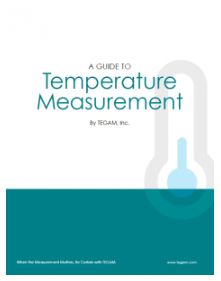Factors in Selecting the Best Temperature Probes and Digital Thermometers for Industry Uses
Posted March 20, 2020 by Advanced Energy Editor
.png?lang=en-US)

There are many factors at play in selecting the best temperature probe/sensor and digital thermometer for a measurement in industry, from datalogging thermometers to thermocouple thermometers and beyond. Selection begins with answering basic questions in order to characterize the actual measurement you want or need to make.
Defining Your Measurement Needs
SAFETY FIRST!
- Are hazardous or explosive materials present? Intrinsically safe thermocouple thermometers are a strong solution.
- If a human is involved in the measurement, are the conditions safe for the person?
- Is the measurement area compliant with all electrical and safety codes?
How frequently do you need to measure?
- One-time
- Intervals
- Continuous
Data from the Measurement
- Do you need to record or log the data for later verification?
- Will the technician also need to write down relevant notes?
- Will the measurement trigger an automatic action?
What Accuracy and Repeatability of the Temperature Measurement is required?
- Temperature range
- Measurement accuracy
- Measurement repeatability
Key Assessments Affecting the Instrument Selection
The media you are measuring primarily determines the form factor of the temperature sensor
- Liquid requires immersion temperature probes
- Gas generally requires a fast response “air” probe
- Surface measurements need a spring, flat ribbon or surface-mountable temperature probe
- Measurements inside a chamber require a temperature sensor that can withstand extremes
- A corrosive environment is a factor in all of the above criteria
- Presence of explosive materials (See above regarding intrinsically safe thermocouple thermometers)
Location parameters of what you are measuring
- Indoors or outdoors?
- Excessive heat or cold?
- Is it a wash-down area?
- Is there movement or vibration during the measurement?
Regulations
- Are there regulatory standards that require you to document your measurements such as food safety, cleanability, or other standards? Datalogging thermometers can meet that need perfectly.
- Will your instruments require an ISO 17025 traceable Calibration Certificate?
- Do you need a calibration certificate with documented readings?
Thanks for reading. See TEGAM’s complete selection of digital thermometers for various applications here. Please contact us if you have more questions or wish to discuss our outstanding lines of digital thermometers and temperature sensors for measurements that matter. Please request a demo of our digital thermometry products here.
